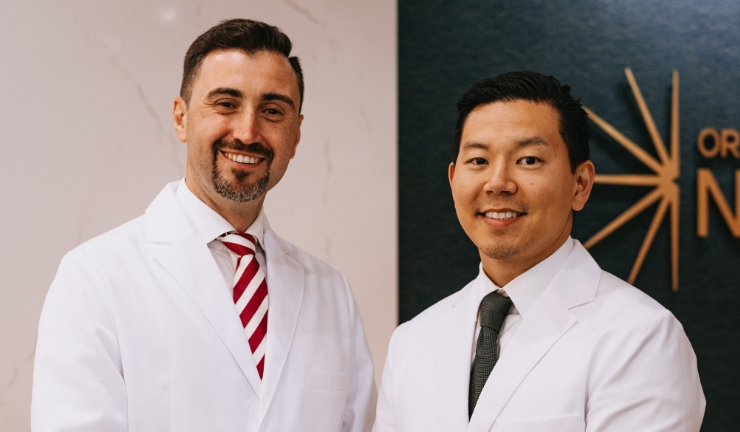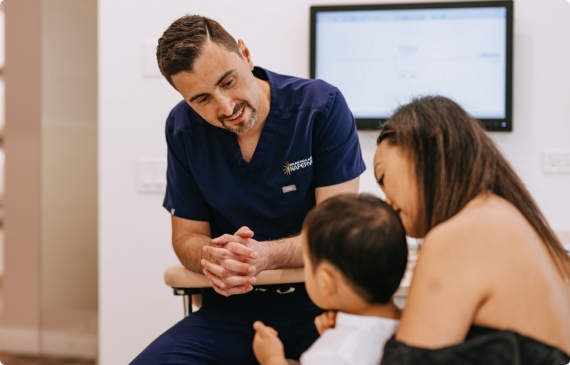- Call Oral and Facial Surgery of Naperville (630) 961-5151 to schedule a consultation with our practice.
- Patient Registration.
- Get Driving Directions.
From the moment you step through the door, you will see that our team is focused on your care and comfort. The initial appointment is a consultation to discuss your diagnosis, as well as available treatment options. Sometimes, a same-day procedure is available, depending on the treatment that is needed and the patient’s medical history. If the treatment plan or medical history is complex, then a thorough evaluation is required, which means a second appointment will be scheduled to complete the treatment on another day.
Please bring the following information to your initial consultation:
- Surgical referral slip from your dentist
- X-rays, if applicable
- List of over-the-counter and prescription medications you are using currently
- Details about previous surgical procedures or hospitalizations
- Insurance information, including completed forms
If a patient is under the age of 18, then it is highly recommended that the minor is accompanied by a parent or guardian.
Precautions: General Anesthesia
If general anesthesia or IV sedation will be used for your treatment, it is important that you have nothing to eat or drink (including water) for at least six hours before the scheduled surgery. If the treatment is scheduled in the afternoon, you can have a light breakfast of toast and juice seven hours before the treatment (but avoid other food, including dairy products).
Wear comfortable, loose-fitting clothing. You will need to have an adult drive you home and provide care for several hours after the treatment.
If you have a medical condition that could increase the risk of anesthesia or oral surgery, this information must be shared with the staff before the treatment. Examples include high blood pressure, diabetes, cancer, artificial heart valves and joints, etc. All medication usage should also be disclosed, including aspirin, anticoagulant therapy, heart medications, chemotherapy, etc. If you normally take medications in the morning, talk to our staff about your normal dosages so we can determine if you should take the medications before the surgery.
X-Rays
Digital images can be forwarded from your dentist to our office. If it is a short-notice surgery, then you should pick up the x-rays and bring them with you to the appointment. When additional x-ray films are needed, we can capture these images in our office. Previous x-rays can be used if they show the entire area of concern and were taken within the past year.
CT Scans
We are proud to offer state-of-the-art technology to provide quality imaging in the comfort of our oral and maxillofacial surgical office. Cone-beam CT (computed tomography) is used for diagnosis, planning, and treatment. Highly accurate images show clear, undistorted views that are anatomically correct and can be used to evaluate the teeth, jaws, and facial bones. Full, panoramic views can be generated, as well as cross-sectional, coronal, axial, cephalometric, and sagittal images.
These 3D images can be used for a variety of treatments, including orthodontics, dental implants, orthognathic surgery, TMJ analysis, and other dental procedures. Three-dimensional technology improves patient care in a way that is not possible using traditional 2D technology.
One of the benefits of our in-office CT scanner is that it uses approximately 1/10th of the radiation used by hospital-grade scanners. Our original machine was purchased in 2006, and we recently replaced it with updated equipment – which speaks to our commitment to providing high-quality, innovative care for every patient.



